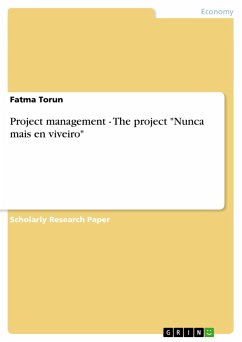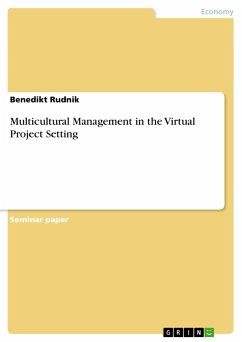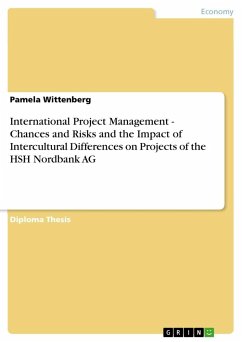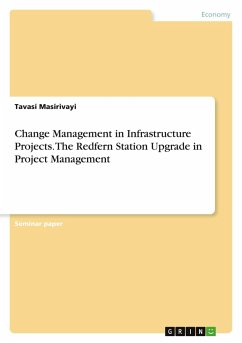
Project management - The project "Nunca mais en viveiro"

PAYBACK Punkte
0 °P sammeln!
Research Paper (undergraduate) from the year 2003 in the subject Business economics - Business Management, Corporate Governance, grade: very good (distinction), European College of Business and Management (ECBM) London, language: English, abstract: Ten years after the disaster of the Agean Sea, the Galician coast is once again threatened by an oil spill. Ten years, during which no effective measures had been put in place to prevent such disasters. "Prestige", a 26 year old single hull oil tanker carrying 77,000 metrics tons of heavy fuel oil, began to break up in mid-November 2002 near the coa...
Research Paper (undergraduate) from the year 2003 in the subject Business economics - Business Management, Corporate Governance, grade: very good (distinction), European College of Business and Management (ECBM) London, language: English, abstract: Ten years after the disaster of the Agean Sea, the Galician coast is once again threatened by an oil spill. Ten years, during which no effective measures had been put in place to prevent such disasters. "Prestige", a 26 year old single hull oil tanker carrying 77,000 metrics tons of heavy fuel oil, began to break up in mid-November 2002 near the coast of Spain's autonomous community of Galicia and towed out to sea, finally sinking 19th November at Cap Finisterre. This place marks the extreme western point of the Iberian Peninsula, where the Prestige has created an oil slick along the coastline of Galicia, and caused one of the major economic and environmental disasters. Fishing is the source of livelihood for an estimated quarter million families in Galicia. In addition to contaminating of the Galician coastline, Europe's richest in fish and shellfish, the oil has spread to Spain's northern coasts of the autonomous communities of Asturias, Cantabria and Basque Country, the French and Portuguese coasts. The "Costa da Morte" is the name given to this coastline, which has seen many shipping accidents over years.Many people from all over the world are cleaning voluntarily the Galician coasts affected by the spill. They have been duped "the white tide" for the protective uniforms they wear and for their work in defence of the environment.1 Since it began spewing toxic fuel oil during a storm off the Galician coast on November 13th, the Prestige has been a major political headache for the Spanish government. The opposition Socialist party and local media have questioned Prime Ministers José María Aznar's decision to send the tanker back out to the stormy Atlantic, rather than allow it into a harbour where spilling oil could be contained before the tanker broke up. Deputy Prime Minister Mariano Rajoy is responsible for the coordination of the government's crisis team to handle the oil spill. The nature conservation department of the Galician regional department, Xunta, is working systematically towards gearing its activities to manage this crisis. Now the oil slick is threatening the "Costa lucense" (also called "Rias Altas") will arrive in the near future at two beaches on the northern Galician coast, next to the town Viveiro. [...]













